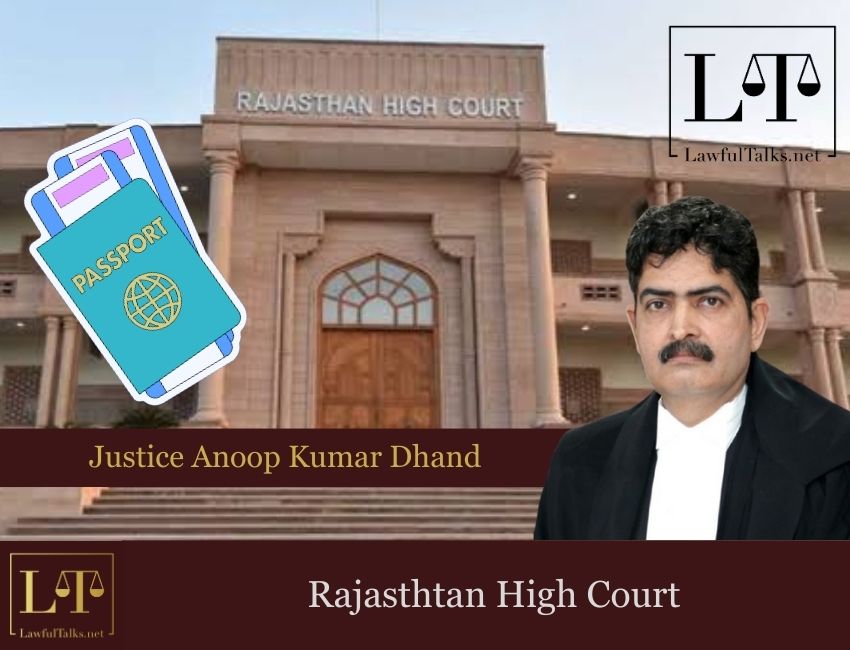Allahabad HC Sets Aside Afzal Ansari's Conviction, Allows Him to Continue as MP

The Rajasthan High Court recently issued a significant ruling emphasizing the Passport Authority's investigative powers while also safeguarding individual rights. Justice Anoop Kumar Dhand, presiding over the matter, clarified that the Passport Authority is empowered to conduct necessary inquiries, including requesting a police verification report, before issuing or renewing a passport. However, the Court stressed that an adverse police report does not automatically disqualify an individual from their legal right to obtain a passport. The authority must independently evaluate the facts and circumstances of each case, as it is not bound by the conclusions of the police verification.

The Court was adjudicating a writ petition filed by Savitri Sharma, challenging the rejection of her application for the renewal of her passport. The petitioner, who previously held a valid passport from 2012 to 2022, faced objections from the authorities during the renewal process due to an adverse police verification report. This report, dated August 7, 2022, cited doubts regarding her nationality, labeling her as possibly Nepali, based solely on an alleged statement by the applicant.
The Bench scrutinized the petitioner’s background, noting her birth in Tihar Jail in 1990, her completion of education under the CBSE system, and her possession of multiple government-issued identity documents, including a PAN card, Aadhaar card, voter ID, and driving license. Additionally, her marital status and her husband’s and father’s status as permanent Indian residents further affirmed her Indian citizenship. The Court highlighted that under Section 3(1)(b) of the Citizenship Act, 1955, a person born in India between July 1, 1987, and the commencement of the Citizenship (Amendment) Act, 2003, is deemed a citizen if either parent was an Indian citizen at the time of birth. In this case, there was no evidence suggesting that the petitioner’s parents did not meet this criterion.
The Bench criticized the authorities for their baseless objections, pointing out that if there had been genuine doubts about the petitioner’s nationality, her initial passport in 2012 should not have been issued. The respondents’ failure to provide concrete evidence raised questions about the validity of their adverse police report and subsequent actions. Justice Dhand reaffirmed the fundamental right to travel abroad under Article 21 of the Constitution, asserting that the withholding of a passport infringes upon this right. Citing landmark cases such as Satwant Singh Sawhney v. D. Ramarathnam and Maneka Gandhi v. Union of India the judgment reaffirmed the constitutional protections against arbitrary actions by executive authorities.
The Bench ultimately set-aside the decision to reject the petitioner’s passport renewal application, directing the Passport Authority to reconsider and decide on the matter within eight weeks. While granting relief, the Court clarified that the respondents could proceed against the petitioner in accordance with the law if adverse findings emerged in the future.
Case Title - Savitri Sharma Daughter Versus Union Of India
Advocates for the Petitioner(s) : Mr. Rakesh Chandel & Mr. Abhinav Bhandari
Advocates for the Respondent(s) : Ms. Manjeet Kaur




















































































































































































































































































































































































































































































































































































































































































































































































































